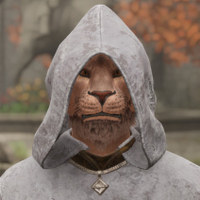## Oblivion’s Glitched Door: A Time-Traveling Shortcut to the End Game (and Back Again?)
Remember the days of painstakingly grinding in Oblivion, fighting your way through countless dungeons and quests just to reach the credits? Well, hold onto your pointy hats, because the remastered version isn’t just a visual upgrade – it’s a time machine! That’s right, the infamous glitched door that lets you bypass the entire game in a mere 15 minutes is still there, waiting to be discovered. PC Gamer’s just spilled the beans, and we’re breaking down how this classic glitch works and what it says about the incredible dedication to the original game that Bethesda has poured into this remaster.

Beyond the Speedrun: Oblivion’s Glitches and Their Appeal
Glitches as Tools of Creativity

Glitches, often perceived as mere bugs or errors, can unexpectedly become powerful tools for creative expression in gaming. These unintentional anomalies can introduce novel gameplay mechanics, unexpected visual effects, or entirely new ways to interact with the game world. For instance, in the case of Oblivion, the infamous “door to the end of the game” glitch, while unintentional, has become an iconic part of the game’s speedrunning community, showcasing the ingenuity of players who can exploit these glitches to achieve impressive feats.
The Charm of Imperfection: Why We Love Glitches
Glitches, despite their potential to disrupt the intended gameplay experience, often hold a certain charm for players. They can introduce a sense of serendipity, humor, and unexpected discovery. The unexpected nature of glitches can create memorable moments and foster a sense of community among players who share experiences and strategies for exploiting these anomalies.
Oblivion Remastered: A New Era for Glitch Hunting
The recent release of the Oblivion Remastered presented a unique opportunity for the speedrunning community. The upgraded engine brought with it a host of new possibilities for glitch discovery and exploitation. This has led to renewed interest in classic glitches like the “door to the end of the game” and the emergence of entirely new glitches specific to the remastered version.
The Lasting Impact
The Role of Speedrunning in Game Development
Speedrunning has evolved into a significant force in the gaming industry, influencing game design and development practices. Developers increasingly recognize the value of speedrunning communities, as they often uncover hidden mechanics, unintended interactions, and potential areas for improvement. Speedrunners’ insightful feedback and community engagement can contribute to a richer and more engaging gaming experience for all players.
Community Preservation: How Speedrunning Keeps Games Alive
Speedrunning plays a vital role in preserving and extending the lifespan of video games. By creating new challenges, discovering hidden secrets, and fostering a sense of community around a game, speedrunning keeps it relevant and engaging for years after its initial release. This sustained interest can prevent games from being forgotten and ensure their continued appreciation by future generations of gamers.
The Future of Oblivion Speedrunning: What’s Next?
The future of Oblivion speedrunning appears bright, fueled by the renewed interest generated by the Oblivion Remastered release. As players continue to explore the depths of the game’s mechanics and uncover new glitches, we can expect to see ever-faster times, innovative strats, and a thriving community dedicated to pushing the boundaries of what’s possible in Oblivion speedrunning.
Conclusion
So there you have it, folks: despite its meticulous remastering, Oblivion still holds onto its legacy of glitches, quirks, and hidden secrets. As PC Gamer points out, the infamous “cheater’s door” remains, a testament to the game’s enduring charm and the enduring love players have for its flaws. This isn’t just a nostalgic trip down memory lane, though. The fact that such a blatant exploit slipped through the remastering process raises questions about how much “fixing” a classic game truly entails. Is it about preserving the original experience, warts and all, or is it about streamlining and polishing for a modern audience? The Oblivion remaster seems to have walked the tightrope between these two extremes, and the “cheater’s door” serves as a fascinating reminder that sometimes, the imperfections are what make a game truly memorable. What other secrets are lurking within the depths of re-released classics? Perhaps it’s up to us, the players, to rediscover them and share our findings. After all, the beauty of gaming lies in its constant evolution, a tapestry woven from both deliberate design and happy accidents.
